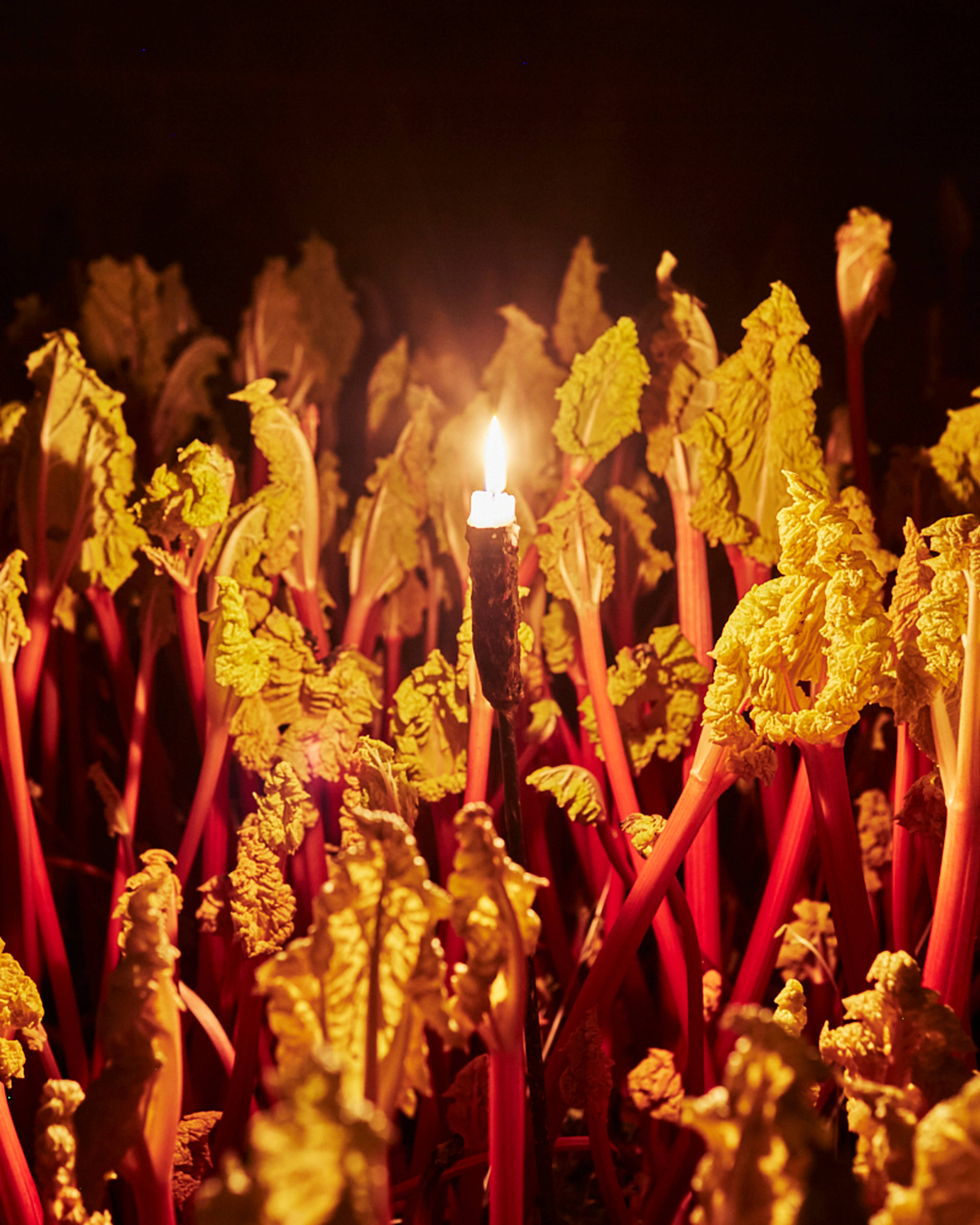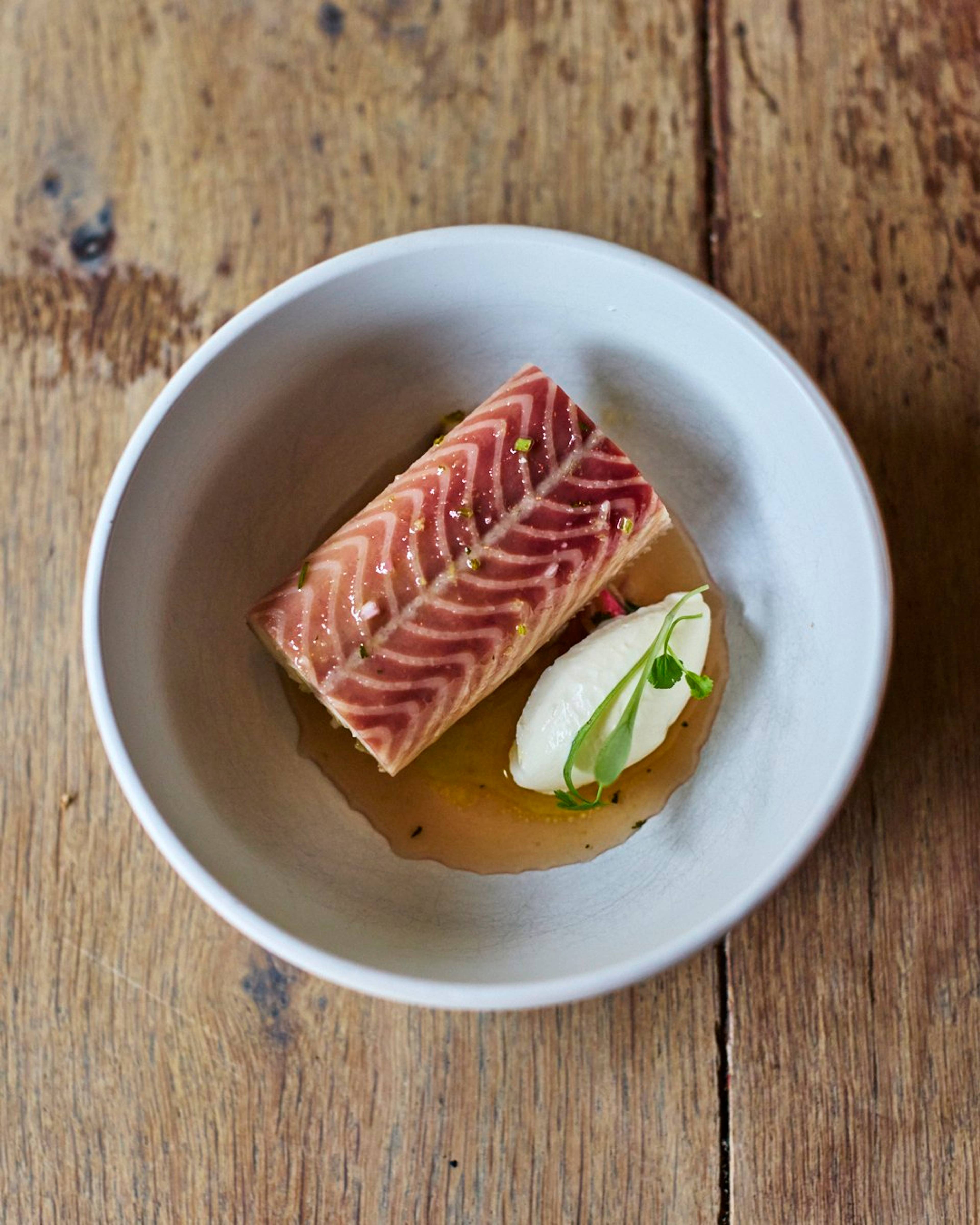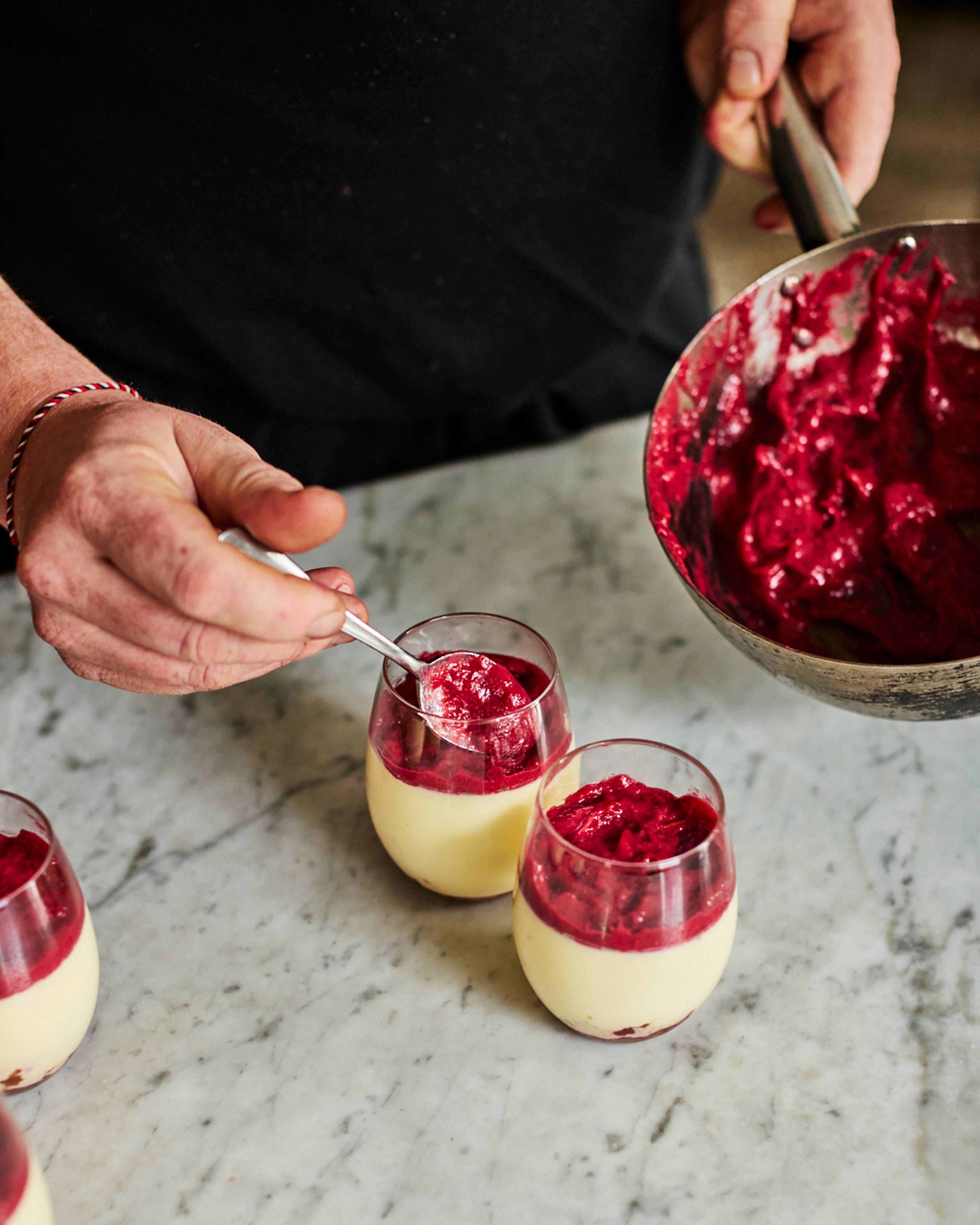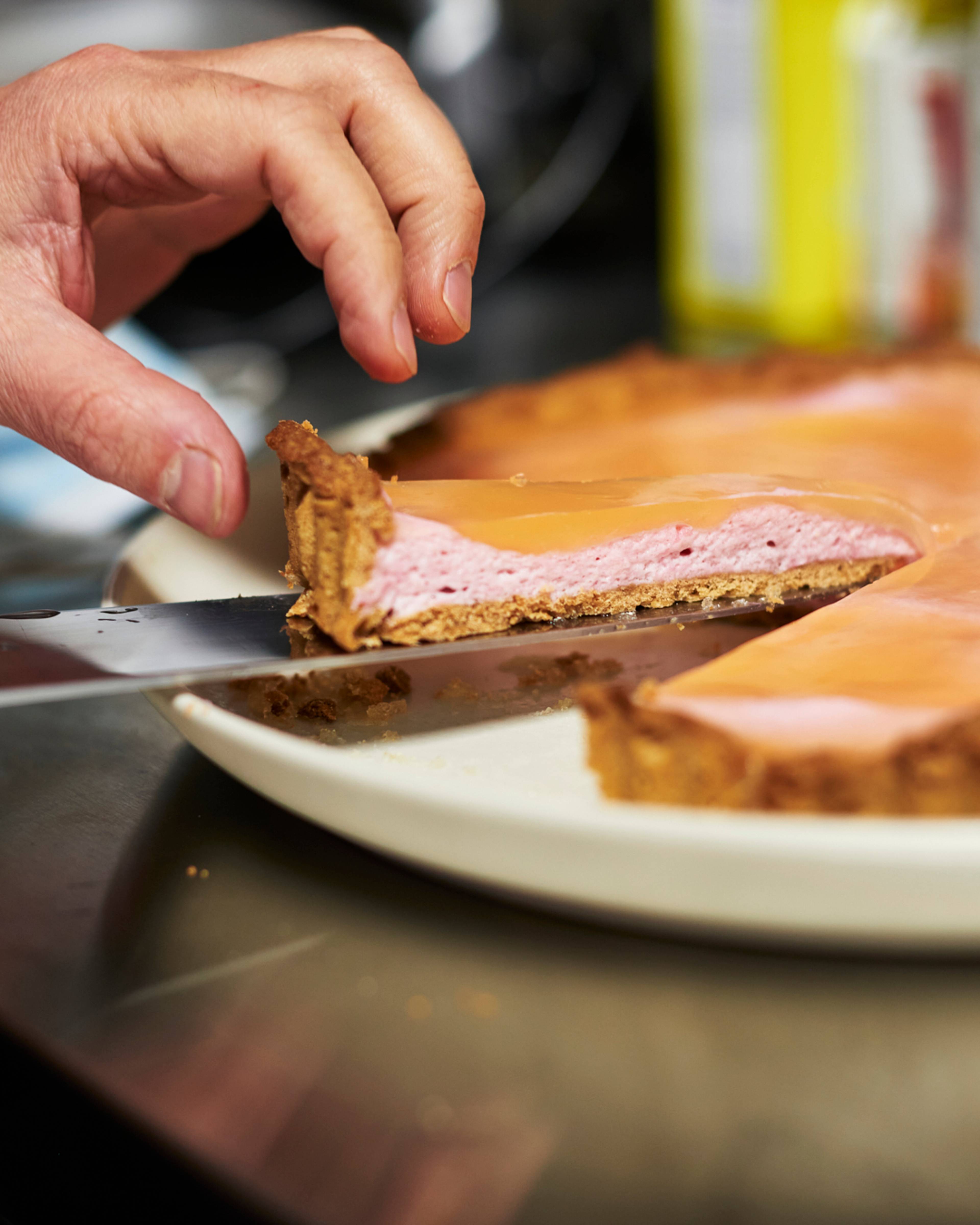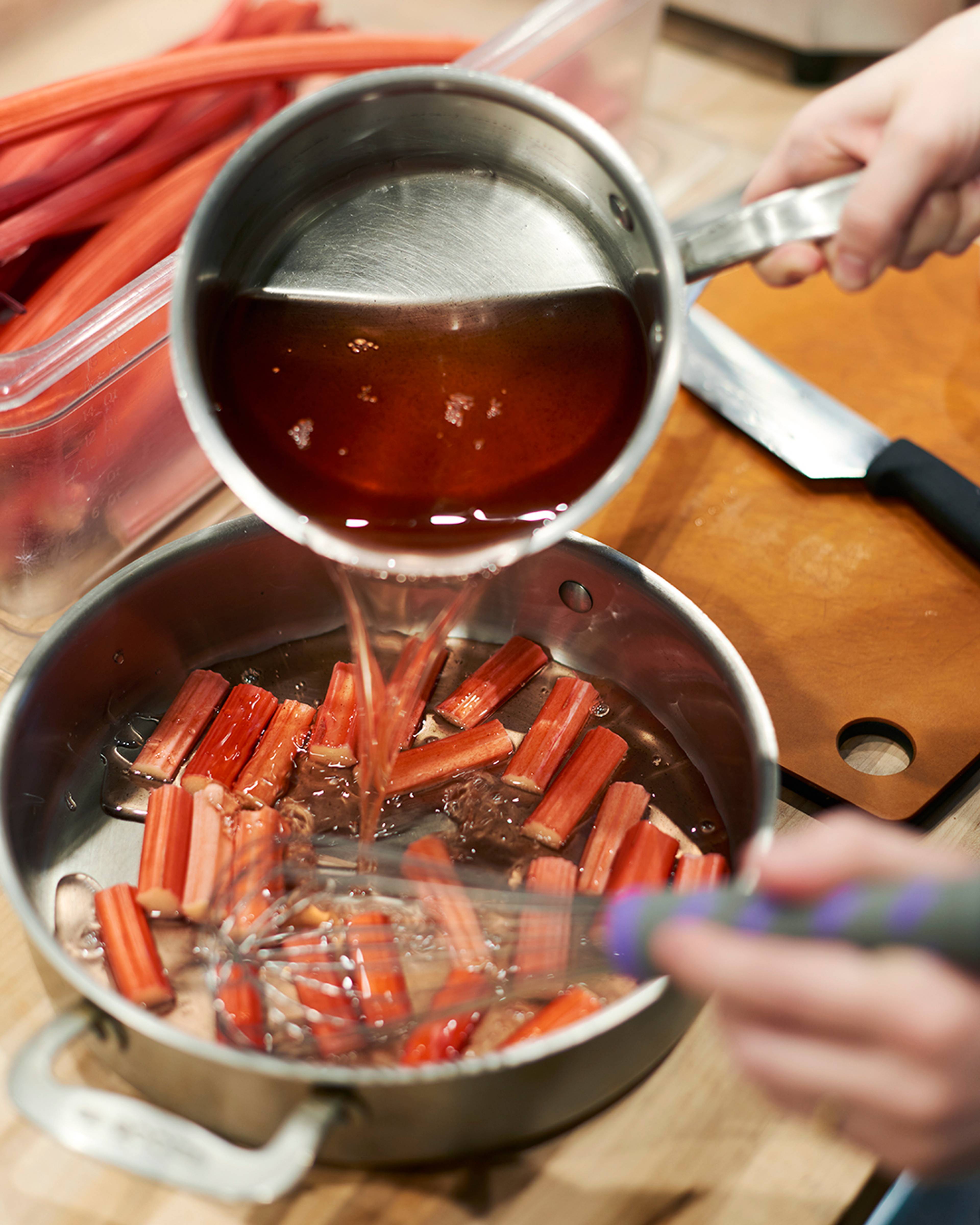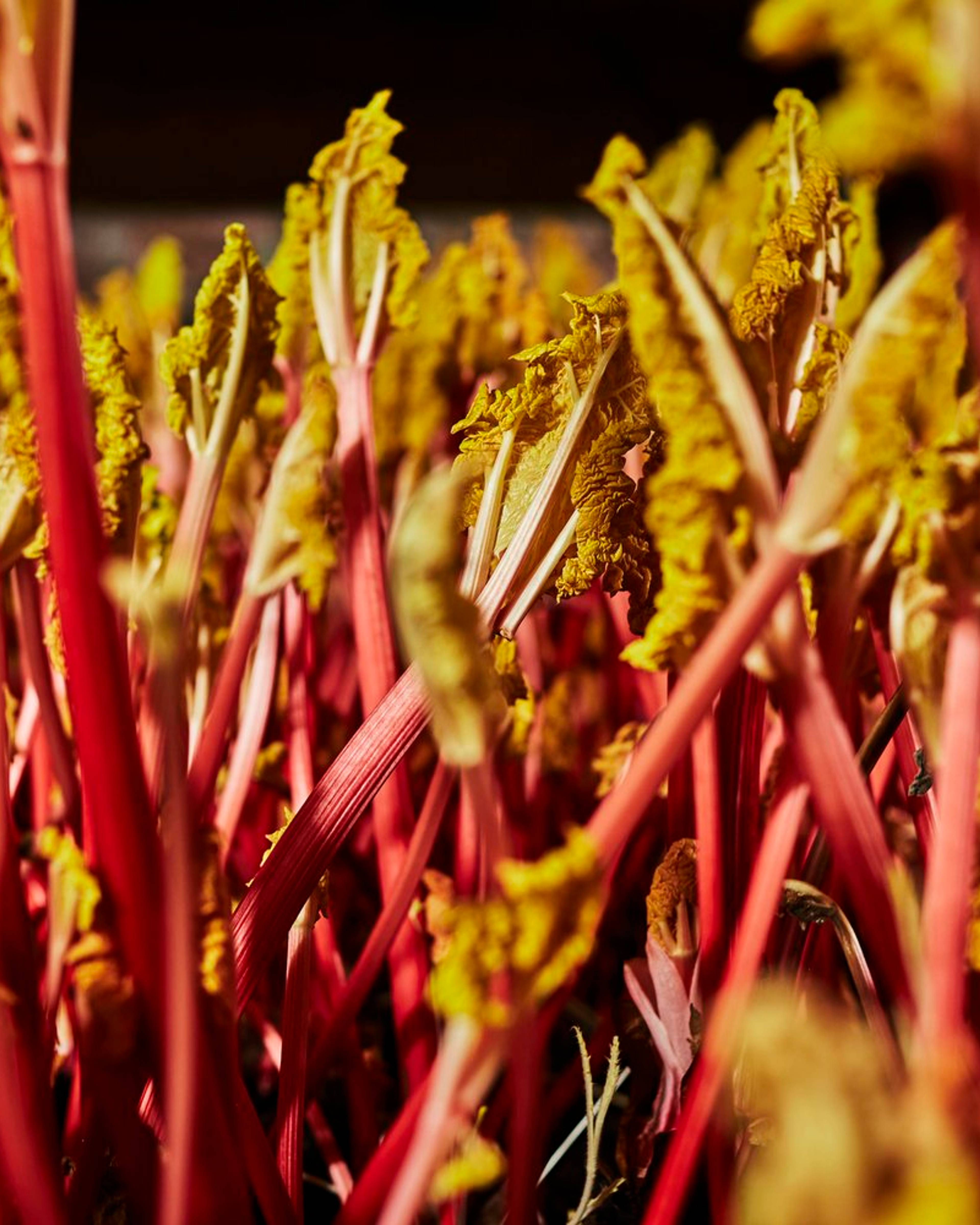FORCED RHUBARB CLAFOUTIS
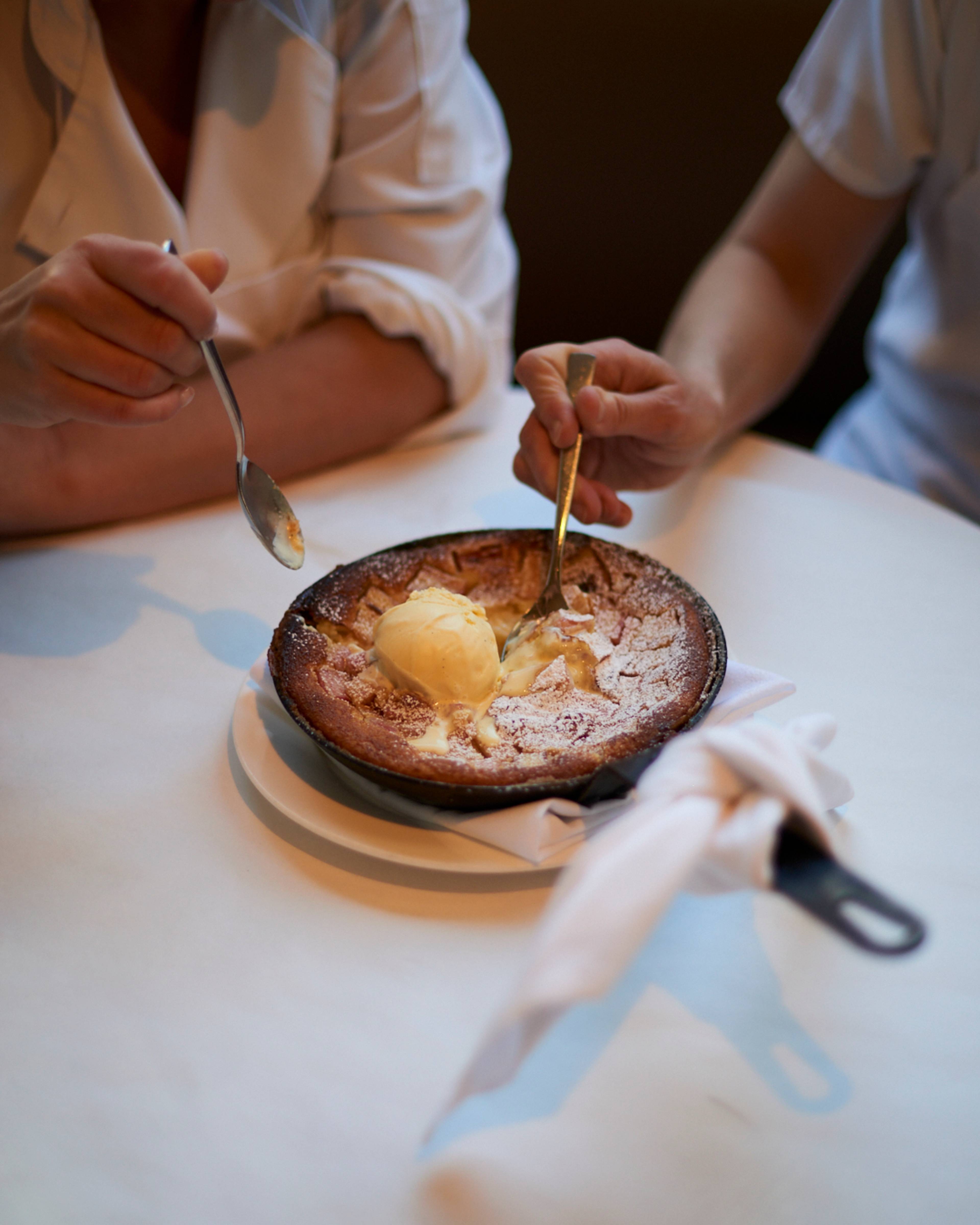
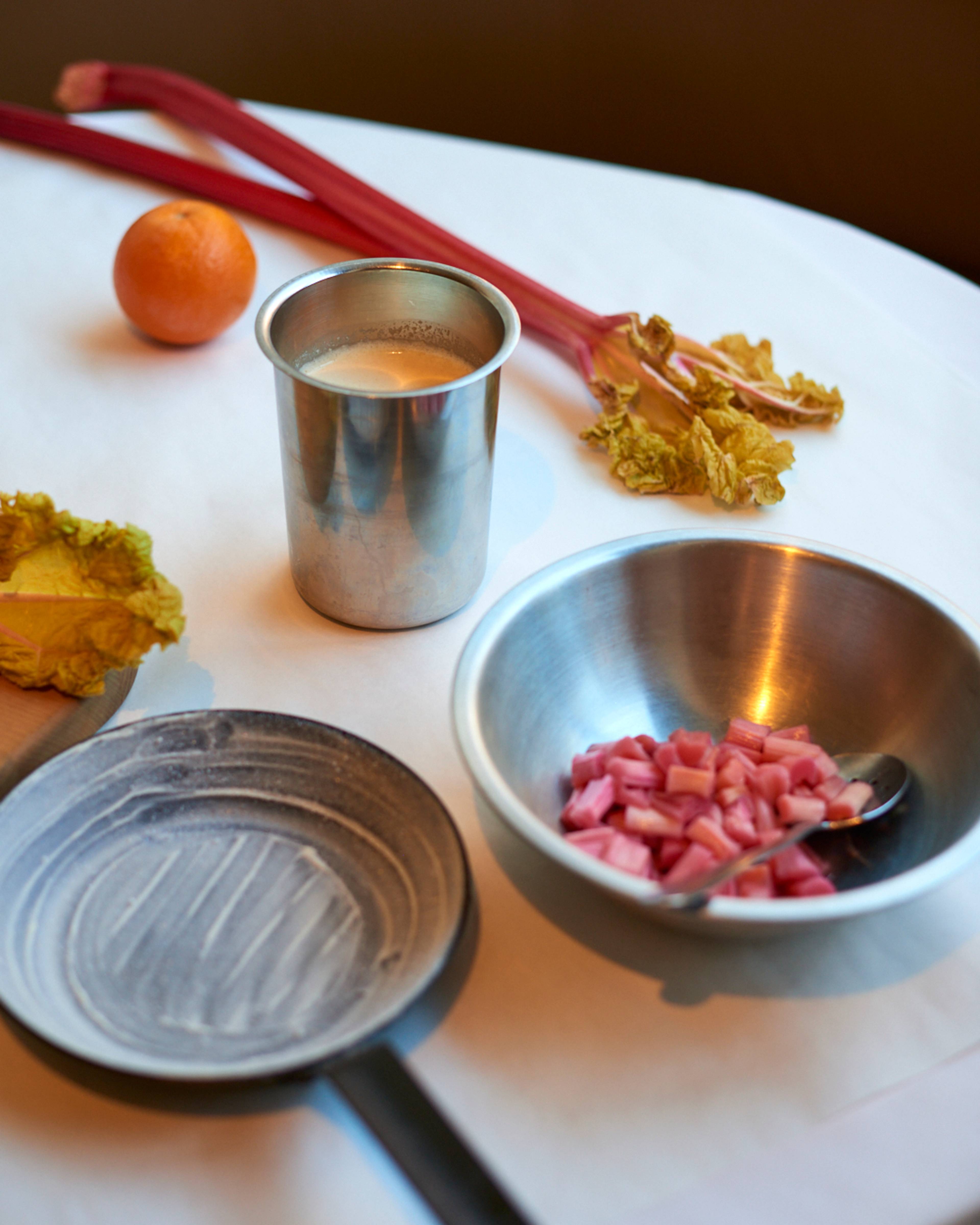
This recipe was created by our friend Jess Shadbolt of King and Jupiter, in collaboration with Natoora and Ffern to celebrate the launch of their rhubarb-scented perfume, Spring 24.
This clafoutis uses rhubarb from the Cook family, one of our growers in the Yorkshire Triangle. Follow his growing story in Ffern’s beautiful documentary. Without an essential oil itself, they have considered its aspects — tart but sweet and distinctly earthy to create their Spring 24 perfume.
'Our small kitchen at King allows for only ten of these baked delights each evening. Served straight from the oven and sent to the table in its cast iron pan, it’s always very well received by a lucky few. The gentle custard is the perfect backdrop to the highly anticipated tart and tangy rhubarb.'
- Jess Shadbolt
Forced Rhubarb Clafoutis
INGREDIENTS
For the Roasted Rhubarb:
1 lb forced rhubarb, rinsed
⅓ cup granulated sugar
2-3 strips of orange peel
A splash of Grappa - optional
For the batter:
A little unsalted butter, softened for greasing
6 whole eggs
1 ½ cups (290 grams) granulated sugar plus extra for dusting
½ vanilla bean, seeds scraped from the pod
½ orange, zest finely grated
1 1/2 cups (300 grams) whole milk
1 1/3 cups (300 grams) heavy cream
¾ cup (100 grams) all-purpose or 00 flour
⅓ cup plus a tablespoon (40 grams) almond flour
Powder sugar, for finishing
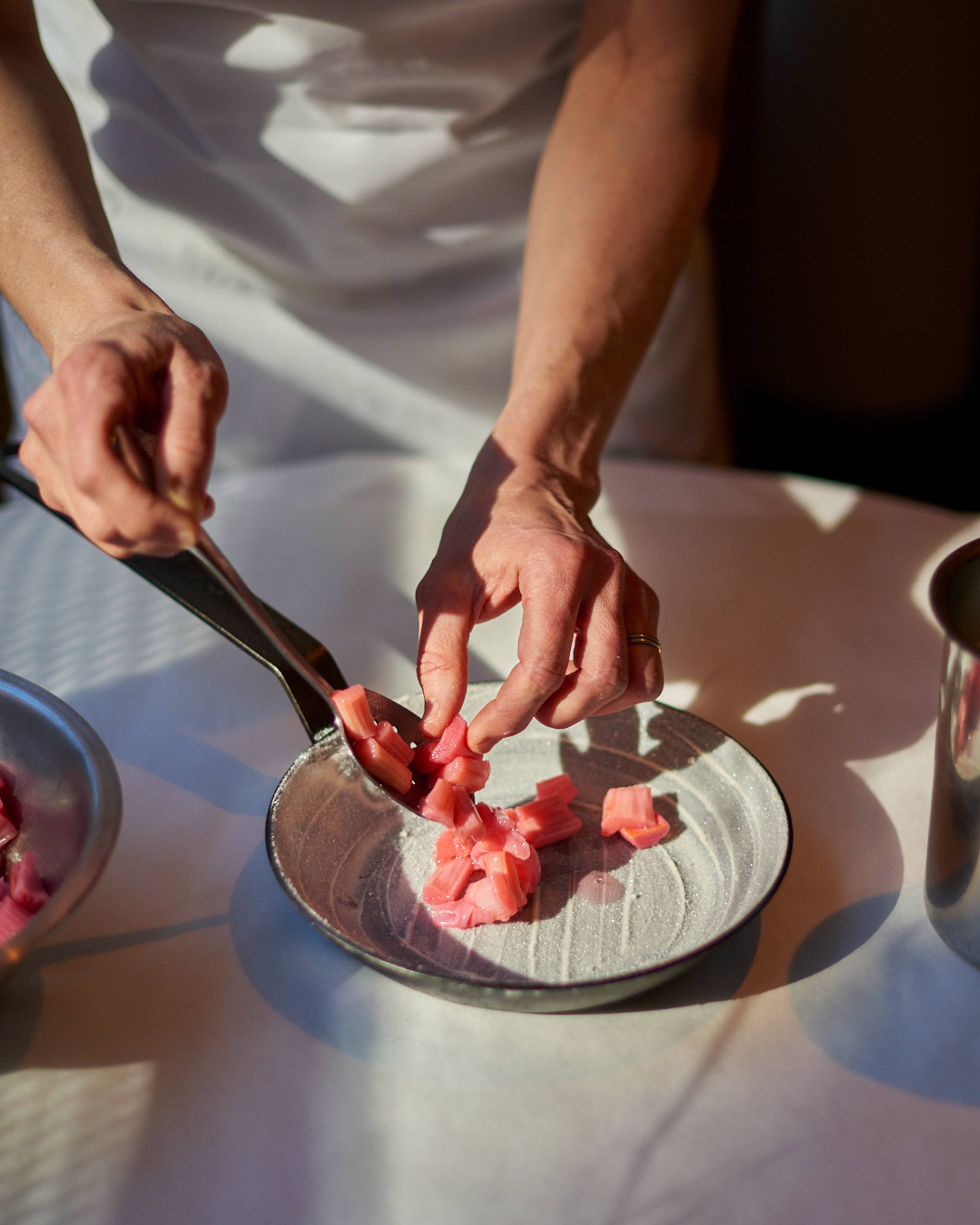
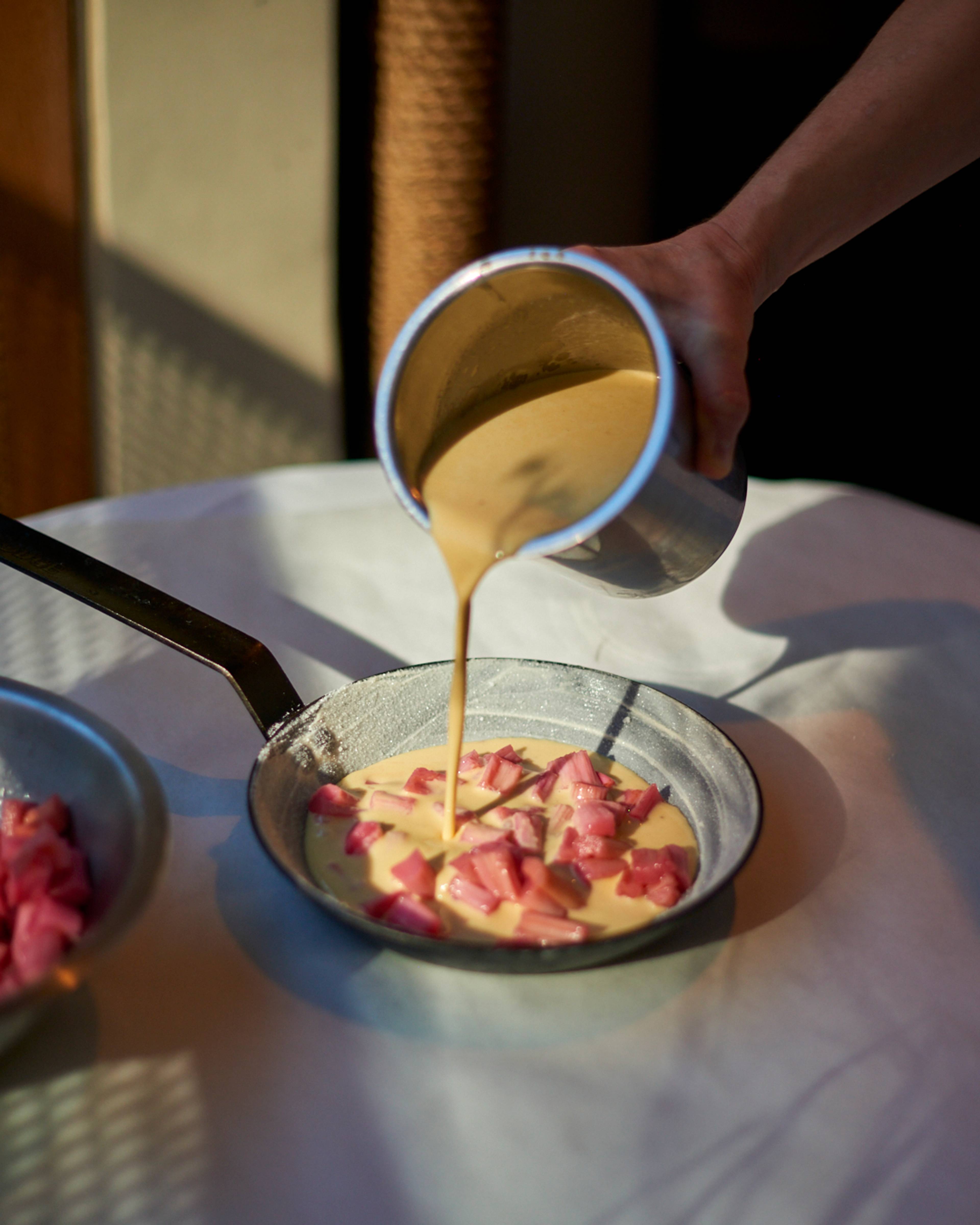
1. To make the roasted rhubarb, preheat the oven to 350 degrees. Top and tail the rhubarb, cutting away any tough end bits. Slice the stalks into 2-inch batons. Spread them across a medium roasting dish that fits the batons in a single, uncrowded layer. If necessary, use 2 dishes.
2. Sprinkle over 1/3 cup sugar and the orange peel. Toss to coat and allow the rhubarb to macerate at room temperature until things get a bit juicy, 15-20 minutes. Splash over 2 tablespoons of water and about a tablespoon of grappa (if used), then spread the fruit out again. Cover the dish with tin foil and bake on the oven’s center rack until the rhubarb is soft but not falling apart, 10-15 minutes. Rhubarb has an uncanny way of suddenly overcooking so keep a careful eye and check frequently. When cooked, remove the dish from the oven and cool completely.
3. To make the clafoutis, increase the oven’s temperature to 400 degrees. Grease a large, heavy skillet, about 10½ inches in diameter, with softened butter. Dust the pan’s inside with sugar, tapping out excess. Add the just-cooked rhubarb to the pan, taking care to leave all its pretty juices behind in the roasting dish (these will go into the custard soon enough, so hold on …).
4. Place the eggs, sugar, vanilla seeds and the finely grated zest from the orange into a large bowl. Whisk to combine and then stream in the milk and cream, whisking all the while. Once combined, stir in the almond flour, all-purpose flour and reserved rhubarb juices until completely smooth; feel free to use a stick blender (this is especially useful if making numerous clafoutis in one go).
5. Pour the batter into the prepared pan and bake, on the oven’s center rack, until the clafoutis looks puffed and golden, 30-35 minutes. When prodded, the custard should feel firm at the edges but a little wobbly in the center.
6. Cool for 5 minutes before dusting the top with powdered sugar. While it’s still quite warm, march the pan to the table. Scoops of our Fior ice cream alongside, or right on top, is standard practice.
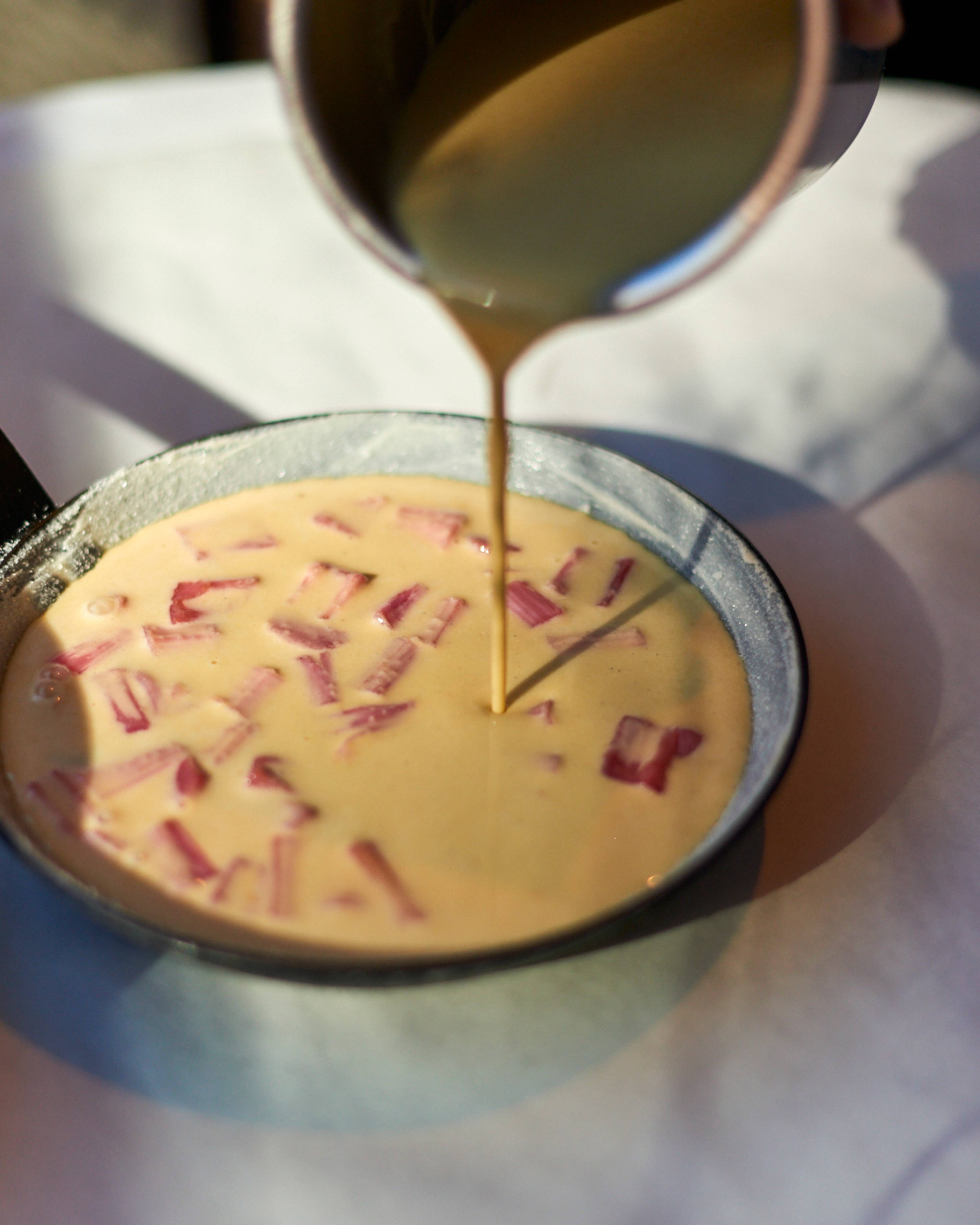
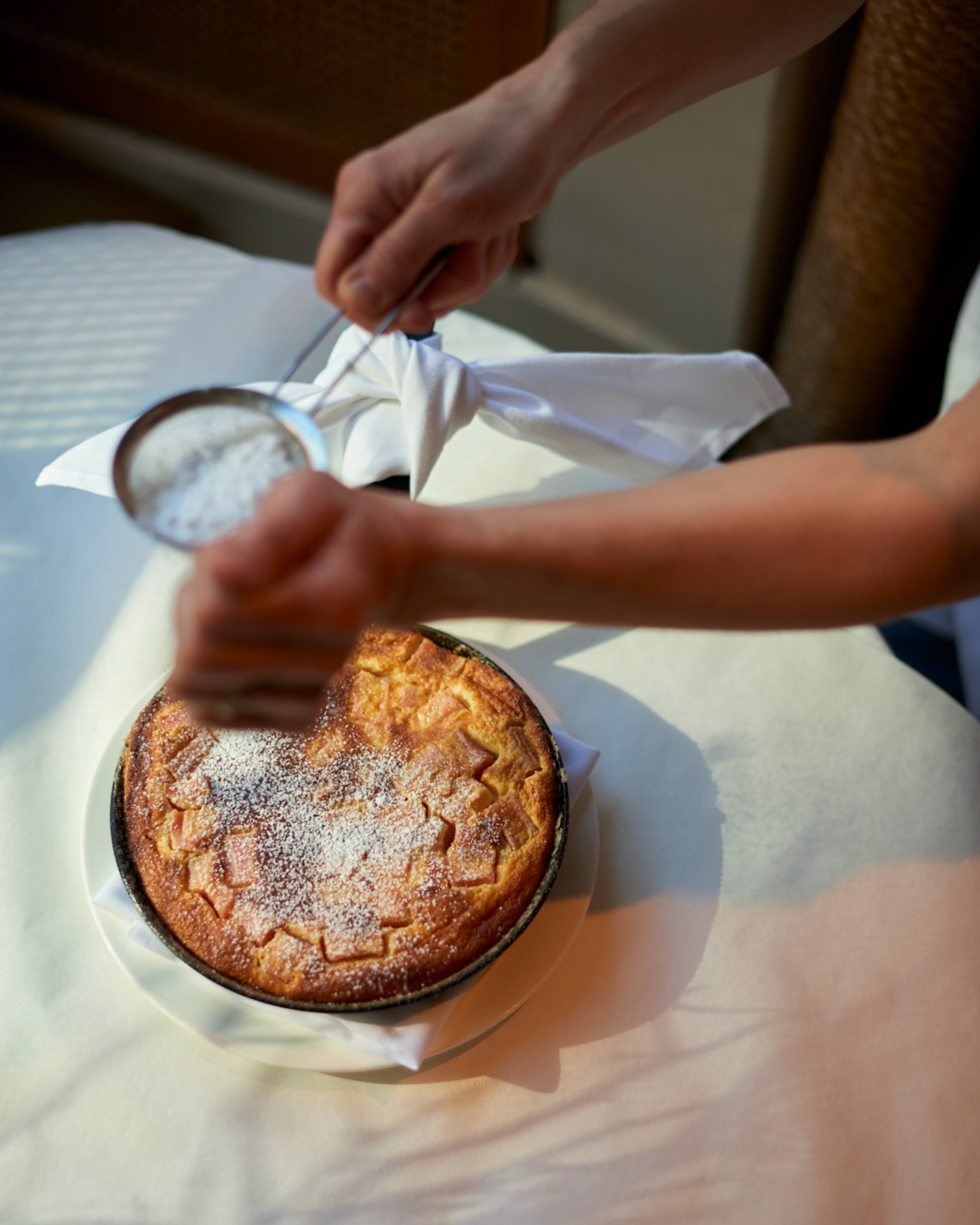
Stories
Voir toutWe exist to fix the food system.
People are more cut off from the origins of their food than ever. This makes flavor, nutrition and farming practices that protect the planet, almost impossible to find.
By working directly with growers, we create a more sustainable way forward for farming. By giving everyone the tools to understand the power of our food choices, we empower everybody to become drivers of change.
Now is the time for action. Join the food system revolution.

Go beyond four seasons
Each fruit and vegetable has its own season, with subtle shifts which happen every day. Follow their microseasons to unlock flavor at every stage.
WHAT’S IN SEASON?

Know where your food comes from
We know the name of the person behind everything we source. Recognize their growing artistry to find out exactly where your food comes from (and why that matters).
MEET THE GROWERS

Make your diet diverse
Our growers work with varieties chosen for quality and nutrition, not yield. By selecting their crops you keep heritage seeds in play, add to ecosystem biodiversity and preserve unique flavors.
GO #OFFTHEPASS
United States
© 2026 Natoora Ltd.
